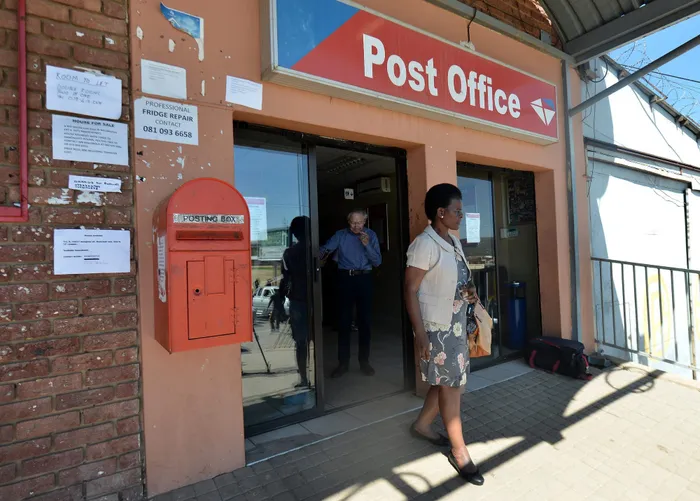Relief for Post Office workers as Supreme Court rules that retirement contributions must continue

Last September, the Pretoria High Court dismissed an application by the fund, seeking an order that would force Sapo to continue making contributions. Picture: Oupa Mokoena/African News Agency (ANA)
Cape Town - South Africa’s postal workers can breathe a sigh of relief now that the post office retirement fund has succeeded in its bid at the Supreme Court of Appeal (SCA) to force the SA Post Office (Sapo) to continue making contributions to the fund.
Last September, the Pretoria High Court dismissed an application by the fund, seeking an order that would force Sapo to continue making contributions. Sapo had said it couldn’t pay as a result of the tough financial situation it found itself in due to Covid-19.
The SCA upheld the fund’s appeal and set aside the high court’s order dismissing the fund’s application and said that it was in breach of its obligation to Sapo.
The fund’s purpose is to pay retirement, death and disability benefits to employees or their dependants. All permanent employees of Sapo are members of the fund which administers contributions paid monthly by Sapo.
Rule 3 of the fund’s rules requires Sapo to deduct a certain percentage of each employee’s salary and to pay it, together with its own contribution, in respect of each employee to the fund on a monthly basis.
In May 2020, Sapo failed for the first time to pay the contributions to the fund. When it failed to do so again at the end of the following month, the fund made an urgent application to the courts to compel it to pay the contributions and to continue to do so.
The fund’s application was dismissed with costs on a punitive scale by the high court, but leave to appeal to the SCA was granted.
Sapo put forward three arguments against making the payments. First, they argued that rule 3 of the fund’s rules did not impose an obligation on it to pay the fund.
This argument was found by the SCA to be without merit.
The court said the language of the rule, interpreted contextually and purposively, clearly placed an obligation on Sapo to pay the defined contributions on a monthly basis.
Sapo’s second argument was that it had the power to choose which of its debts to pay and which not.
It said that as a result of its financial weakness, it was unable to pay all of its creditors and had decided to prioritise the payment of those that related directly to its core business of providing a postal service to the public and the payment of social grants.
The SCA also found this argument to be without merit and said Sapo, as an organ of state, could only do what the law authorised it to do and that no provision of the Constitution authorised Sapo to decide which of its creditors to pay and which not.
Sapo’s third argument was that payment of contributions to the fund had become impossible as a result of the Covid-19 pandemic, and that this extinguished its obligation to pay.
This argument also failed, and the SCA ruled that the evidence Sapo presented did not establish that the impossibility to pay arose as a result of casus fortuitus or an act of God, as required by the law.
mwangi.githahu@inl.co.za
Related Topics: